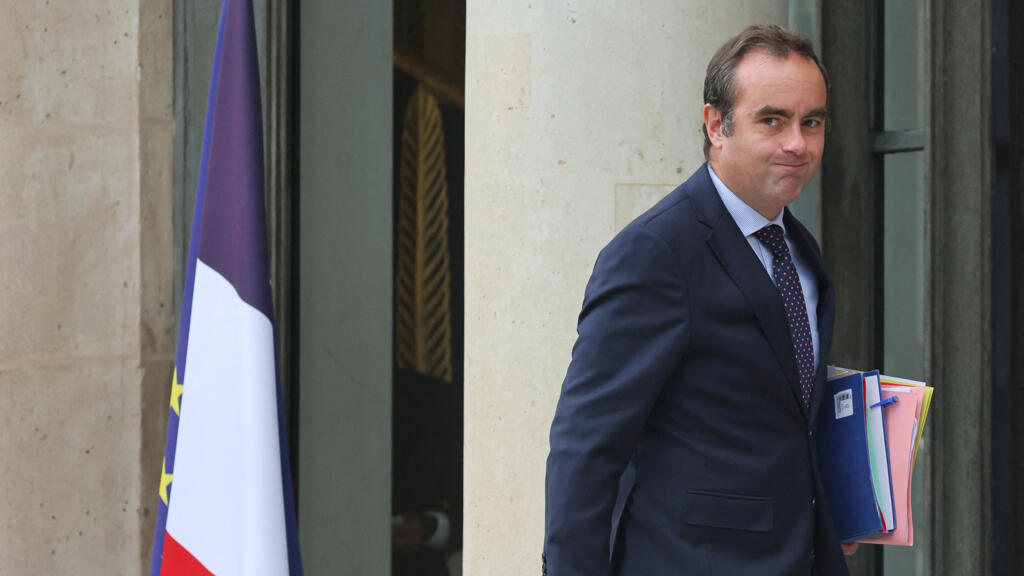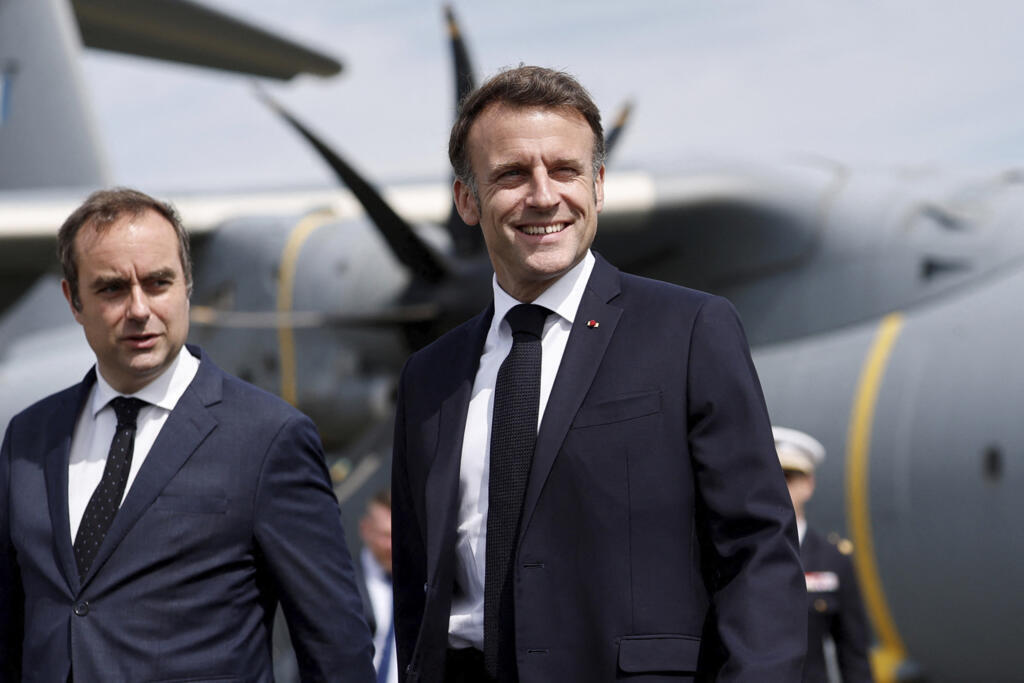
Sébastien Lecornu on Wednesday became France's fifth prime minister in less than two years. The former defence minister is seen as a consummate strategist and close ally of President Emmanuel Macron, who is hoping Lecornu can forge some much needed consensus in a fractured parliament.
Lecornu has been a constant, if discreet, presence in the French government since Macron came to power in 2017.
He joined the president's first cabinet as a secretary of state in the ministry of ecology, before being promoted to minister – initially in charge of local authorities (2018-2020), then of overseas territories (2020-2022), and for the past three years, of France's defence.
Few other figures have survived as long, a testament to Lecornu's knack for building tactical alliances. RFI's defence correspondent Franck Alexandre calls him "a political animal" through and through.
Political prodigy
Lecornu, 39, has two decades of political experience behind him.
The grandson of a French Resistance fighter, he grew up in a modest working family in Normandy and studied law at university.
After flirting with a career in the army – or even, according to Le Monde, life as a Benedictine monk – Lecornu was soon drawn to rightwing politics.
An activist for the conservative Union for a Popular Movement (UMP) in his teens, by 20 he was a parliamentary assistant to one of the party's MPs.
Within two years he was advising a junior minister for European affairs, before taking office himself as mayor of his hometown Vernon and then president of the surrounding department of Eure – at 29, younger than anyone else before him.
'Practical approach'
Lecornu's first national post came two years later, when he joined other conservatives in switching allegiance from traditional rightwing parties to Macron's new centrist movement and was handed the ecology portfolio.
He cemented his position in 2019 when, with the "Yellow Vest" protests at their height, he helped Macron organise a series of town hall debates around France aimed at defusing demonstrators' anger at out-of-touch politicians.
The president promptly praised Lecornu for his "practical approach".
Where did France's culture of political compromise go, and is it coming back?
Lecornu reached across the divide again as defence minister, when he succeeded in convincing parliament to massively boost the military budget.
Appointed a few months after Russia's invasion of Ukraine, he also oversaw France's support for Kyiv – something that has remained relatively constant despite more than a year of political upheaval.
Man in the background
Throughout his rise, Lecornu has kept a low public profile. He rarely speaks about his personal life and maintains a sober presence on social media.
For Macron, that might be part of the appeal.

Unlike other recent PMs Gabriel Attal and François Bayrou, who have both been tipped as potential candidates to replace Macron as president, Lecornu is seen as unlikely to seek the top job.
As one unnamed ministerial adviser told news agency AFP, Lecornu is "a loyal soldier who doesn't have too much charisma or presidential potential".
'Macron's shield'
Now Macron is relying on Lecornu's reputation as a dealmaker to establish a working government despite deep divisions in parliament.
The president has instructed him to hold talks with different factions with a view to agreeing on a 2026 budget, the task that proved impossible for Lecornu's predecessors.
France's debt: how did we get here, and how dangerous is it?
But as a member of the president's inner circle – Lecornu is rumoured to have frequent lunches with First Lady Brigitte Macron – he may struggle to convince his opponents to work with him.
Figures from the far right and left have denounced his appointment, calling him a stooge and accusing Macron of seeking to cling on to power.
Meanwhile after the "Block Everything" protests on Wednesday, and a strike planned for next week it is likely voters, too, want a more radical break with the status quo.
According to RFI's chief political correspondent Valérie Gas, Lecornu now finds himself acting as "Macron's shield" – a loyalist tasked with preventing a dissolution and shoring up the president against pressure from both parliament and the public.







